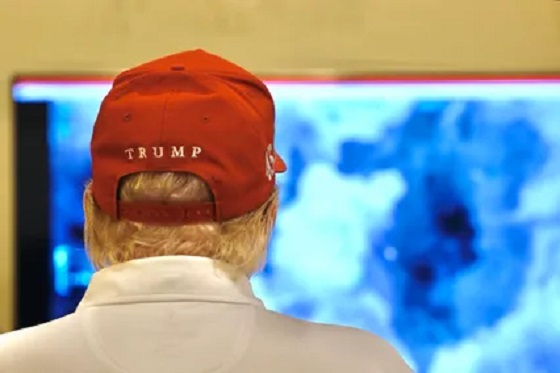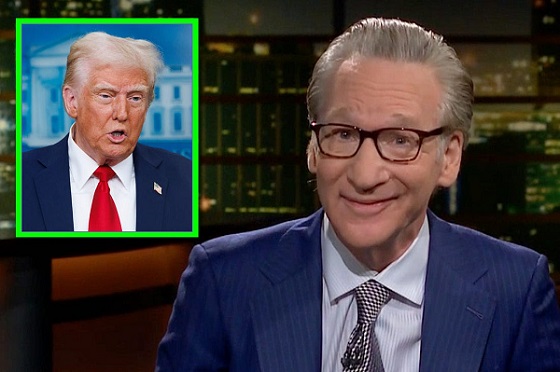conflict
‘Wickedly Complex Situation’: Trump Will Face Another Foreign Policy Powder Keg On Day One

From the Daily Caller News Foundation
By Wallace White
President-elect Donald Trump will have to deal with another volatile situation in Syria as a new faction toppled Syrian President Bashar al-Assad’s 24-year regime, setting the stage for another potentially protracted conflict.
The al-Assad dictatorship came crashing down Saturday after rebels led by Islamic group Hayat Tahrir al-Sham (HTS) seized Syria’s capital in Damascus, bringing a bloody conflict to a close that has raged since 2011. However, the potential for conflicts among other rebel factions mixed in with Israeli, Russian and U.S. operations in the country creates a precarious situation that could ignite at any moment, presenting the incoming Trump-Vance administration with a major foreign policy challenge on day one.
“It’s a wickedly complex situation that definitely has a lot of U.S. interest,” Brent Sadler, senior research fellow for the Allison Center for National Security at the Heritage Foundation, told the Daily Caller News Foundation. “I think that’s the first thing to acknowledge upfront is [that] it doesn’t necessarily mean we have to be more militarily engaged than we are already, but at the same time signaling readiness to reward those that share our interests and values, and to punish those who don’t. It’s the early days, quite frankly, to know exactly how the power situation is going to play out in Syria.”
HTS was designated by the U.S. as a foreign terrorist organization in 2018 under the Trump administration, according to the Office of the Director of National Intelligence. The group first organized in 2017 when the former leader of al-Qaeda’s Syrian branch, Abu Muhammad al-Jawlani, split with the organization over strategic differences.
Al-Jawlani was formerly detained by U.S. forces during the invasion of Iraq, being let out in 2011, according to The Wall Street Journal. Al-Jawlani reportedly expressed a moderate position on minorities like Christians staying in their country, however some are still anxious as to what he may ultimately end up doing on the matter.
“At some point back in 2018 to 2019, al-Jawlani makes a break from the ideology of ISIS and certainly al-Qaeda, because I think he realized there is no way to unify the Syrian people to topple Assad’s regime without moderating their very radical Salafist ideology,” Sadler told the DCNF. “They’re still Islamist, but I think they’re trying to moderate themselves for very pragmatic reasons.”
The two most influential factions other than HTS include the U.S.-backed Kurdish Syrian Defense Force (SDF) and the Turkish-backed Syrian National Army (SNA).
The SNA formed in 2017 out of various rebel groups in northern Syria to oppose the Assad regime and HTS, according to Middle East Eye. However, SNA joined the most recent offensive alongside HTS after the group took the city of Aleppo, according to Reuters.
The SNA are also currently fighting the SDF as well in the wake of Assad’s collapse, according to the Foundation for Defense of Democracies (FDD) Tuesday.
With HTS’ ascendancy adding profound uncertainty to the region, Trump stated in a post on Truth Social Saturday that he wants the U.S. to stay uninvolved in Syria, saying there was not much to gain for the U.S. in direct involvement at this time.
“What the Trump administration needs to think about is, ‘where in this does U.S. interest lie? How do we influence what’s happening there to our advantage?’” Simone Ledeen, former deputy assistant secretary of defense for the Middle East, told the DCNF. “Also, it’s important to note we have troops on the ground in Syria, and they’ve been taking fire for the last four years. What’s our desired strategic end-state in Syria? What do we need them to accomplish, besides taking fire from Iranian proxies?”
The U.S. operates al-Tanf military base in southern Syria, which has also served as the headquarters for operations against ISIS since 2016, according to the Council on Foreign Relations. During Assad’s rule, the U.S. operated the base against his will.
Currently, the U.S. has 900 troops stationed in Syria, according to the Pentagon. Trump, who ran on ending “forever wars,” attempted to withdraw troops from Syria in 2018 but faced enormous pushback from foreign policy hawks of both parties. Ultimately, the U.S. retained some troops in the nation mainly for anti-ISIS operations, according to Politico.
Israel has taken advantage of the power vacuum, seizing strategically vital areas in the Golan Heights region in southern Syria, according to The Washington Post Monday. The newly seized positions put Damascus within Israeli artillery range, Sadler told the DCNF.
The U.S. also conducted strikes on Sunday with Israel against ISIS targets.
In Damascus, the rebels appointed Mohamed al-Bashir, a former HTS opposition government member, as interim prime minister to solidify unity in the rebel front, according to Reuters Tuesday. John Hardie, Russia program deputy director at the FDD, told the DCNF that Trump needs to stay involved enough to work with whoever ends up maintaining power in the region.
“I think the next administration and their allies are really going to have to resist the temptation just to kind of watch from the sidelines,” Hardie told the DCNF. “We’re going to have to play an active role. I think our very small economy-of-force military presence we have in eastern Syria is a good thing for keeping a lid on ISIS. And I would hope that the next administration will kind of work hard with the actors who are coming to power, whatever that new government looks like.”
While Russia’s influence took a massive hit from the fall of Assad, Trump will still have to deal with their remaining pockets of influence while trying to negotiate peace in Ukraine.
Russia’s main chance at influencing the region is through the Alawites living on Syria’s western coast where Tartous Naval Base, Russia’s only port on the Mediterranean Sea, is located. The Alawites were a staunchly pro-Assad faction for most of the civil war, according to Reuters.
“Watch the Russians and watch Latakia,” Sadler told the DCNF. “If the Russians think they have a chance of reconstituting any influence, it’s probably going to be in and around their bases in Latakia. And again, that’s the Alawites, so if there’s any hope of that, that’s where it’s going to be.”
However, Hardie thinks now that Assad is out of the picture, the best hope of the Russians regaining their influence in the region lies in cooperating with the rebels.
“The Kremlin is certainly trying to now play nice with these groups, especially HTS,” Hardie told the DCNF. “You may have seen that just a few days ago, were calling them terrorists, and [Russian Foreign Minister Sergei] Lavrov was sort of chiding journalists for calling them ‘opposition’ rather than ‘terrorists,’ and saying they should never be allowed to. Now they’re saying they will engage with all parties, and the Russian state is calling them ‘armed opposition.’”
Secretary of State Antony Blinken said that he will back a Syrian government that respects minorities, condemns terrorism, bars the use of chemical and biological weapons and supports humanitarian assistance, according to a Tuesday press release.
“We continue to monitor the situation in Syria. President Trump is committed to diminishing threats to peace and stability in the Middle East and to protecting Americans here at home,” Trump-Vance Transition Spokesman Brian Hughes told the DCNF Wednesday.
conflict
Zelensky Alleges Chinese Nationals Fighting for Russia, Calls for Global Response

 Sam Cooper
Sam Cooper
Ukrainian President Volodymyr Zelensky announced Tuesday that his forces have captured two Chinese citizens fighting as part of the Russian army in eastern Ukraine, alleging “there are many more Chinese citizens in the occupier’s units.” The stunning revelation could inject a volatile new dimension into ceasefire negotiations between the United States and Russia—and intensify already fraught tensions over Taiwan.
Zelensky shared the news in an X post, accompanied by video of one of the captured men—an Asian male in beige fatigues, hands bound with zip ties, visibly distressed as he gestures to a Ukrainian camera operator. The video shows the man making whirring sounds, crouching instinctively as if a drone is circling above and opening fire—then glancing up and uttering the English word, “commander.”
“We have information suggesting that there are many more Chinese citizens in the occupier’s units than just these two,” Zelensky wrote on X. “We are currently verifying all the facts—intelligence, the Security Service of Ukraine, and the relevant units of the Armed Forces are working on it.”
The president said he has instructed Ukraine’s foreign minister to urgently contact Beijing to clarify how China intends to respond.
“Russia’s involvement of China, along with other countries, whether directly or indirectly, in this war in Europe is a clear signal that Putin intends to do anything but end the war,” Zelensky wrote. “He is looking for ways to continue fighting. This definitely requires a response. A response from the United States, Europe, and all those around the world who want peace.”
Zelensky added that Ukrainian authorities had recovered documents, bank cards, and personal data from the two prisoners—material that could be pivotal in discovering the nature of China’s involvement.
If verified, the presence of Chinese nationals fighting for Russia could carry sweeping geopolitical implications. It would complicate delicate U.S.-Russia negotiations aimed at exploring a conditional ceasefire, and could have indirect ramifications on the plans of Washington, Tokyo, and Taipei in their growing confrontation with Beijing.
China has repeatedly denied providing direct military support to Russia. Zelensky’s statement marks the first time Ukraine has publicly alleged that Chinese nationals are embedded in Russian combat units—an allegation that, if substantiated, could alter the strategic calculus in both Eastern Europe and the Indo-Pacific.
Responding to Zelensky’s claims, Tom Shugart, a senior defense analyst at the Center for a New American Security and a former U.S. Navy officer, emphasized that the strategic implications hinge on whether the Chinese nationals were acting as mercenaries or state-directed personnel. “If the PRC is actively providing soldiers to fight in Ukraine, that would be altogether different—a possible sign of a real Axis that may best be resisted wherever it is fighting,” he wrote on X.
This is a developing story. The Bureau will continue to report as further details emerge.

Recommend The Bureau to your readers
conflict
“HELL WILL RAIN DOWN”: Trump unleashes U.S. military on Yemeni Houthis

 MxM News
MxM News
Quick Hit:
President Trump ordered a massive military assault on Iranian-backed Houthi forces in Yemen on Saturday, vowing to unleash “overwhelming lethal force” after months of attacks on American and allied vessels in the Red Sea.
Key Details:
-
Trump announced the strikes in a Truth Social post, stating, “Today, I have ordered the United States Military to launch decisive and powerful Military action against the Houthi terrorists in Yemen.”
-
He criticized former President Joe Biden for failing to contain the Houthis, saying his response was “pathetically weak” and emboldened the group’s ongoing attacks on commercial and military vessels.
-
The U.S. Navy’s USS Harry S. Truman carrier strike group, along with three destroyers and a cruiser, launched the assault, targeting radars, air defenses, and missile systems used to disrupt shipping lanes.
CENTCOM Forces Launch Large Scale Operation Against Iran-Backed Houthis in Yemen
On March 15, U.S. Central Command initiated a series of operations consisting of precision strikes against Iran-backed Houthi targets across Yemen to defend American interests, deter enemies, and… pic.twitter.com/u5yx8WneoG
— U.S. Central Command (@CENTCOM) March 15, 2025
Diving Deeper:
President Trump escalated U.S. military action against Iran-backed Houthi rebels on Saturday, ordering airstrikes on targets in Yemen in response to the group’s repeated attacks on Red Sea shipping. Trump, in a Truth Social post, declared that the U.S. military would not tolerate continued aggression and vowed an overwhelming response.
“The Houthi attack on American vessels will not be tolerated,” Trump wrote. “We will use overwhelming lethal force until we have achieved our objective.” He directly warned the Houthis, stating, “YOUR TIME IS UP, AND YOUR ATTACKS MUST STOP, STARTING TODAY. IF THEY DON’T, HELL WILL RAIN DOWN UPON YOU LIKE NOTHING YOU HAVE EVER SEEN BEFORE!”
The strikes, carried out by U.S. Central Command, targeted missile sites, drone launch facilities, and command centers used by the Houthis to strike commercial and military vessels in the Red Sea. U.S. warships and carrier-based fighter jets participated in the mission, marking a significant escalation in efforts to protect international shipping routes.
Trump also issued a direct warning to Iran, demanding that its support for the Houthis “must end immediately.” Addressing Tehran, Trump wrote, “Do NOT threaten the American People, their President…or Worldwide shipping lanes. If you do, BEWARE, because America will hold you fully accountable and we won’t be nice about it!”
The strikes come after more than a year of escalating attacks by the Houthis, who have targeted over 100 merchant vessels, sunk at least two, and killed multiple sailors since the Israel-Hamas war began. Trump pointed to Biden’s failures in handling the crisis, noting that “it has been over a year since a U.S.-flagged commercial ship safely sailed through the Suez Canal, the Red Sea, or the Gulf of Aden.”
With Trump’s order, the U.S. is making clear that hostile actions in the Red Sea will not go unanswered. As military operations continue, all eyes will be on whether the Houthis and their Iranian backers heed the warning—or face even greater firepower from the U.S. military.
-

 espionage1 day ago
espionage1 day agoEx-NYPD Cop Jailed in Beijing’s Transnational Repatriation Plot, Canada Remains Soft Target
-

 Business2 days ago
Business2 days agoDOGE Is Ending The ‘Eternal Life’ Of Government
-

 2025 Federal Election2 days ago
2025 Federal Election2 days agoCanada drops retaliatory tariffs on automakers, pauses other tariffs
-

 2025 Federal Election2 days ago
2025 Federal Election2 days agoTucker Carlson Interviews Maxime Bernier: Trump’s Tariffs, Mass Immigration, and the Oncoming Canadian Revolution
-

 2025 Federal Election1 day ago
2025 Federal Election1 day agoBREAKING from THE BUREAU: Pro-Beijing Group That Pushed Erin O’Toole’s Exit Warns Chinese Canadians to “Vote Carefully”
-

 Daily Caller1 day ago
Daily Caller1 day agoTrump Executive Orders ensure ‘Beautiful Clean’ Affordable Coal will continue to bolster US energy grid
-

 Daily Caller1 day ago
Daily Caller1 day agoDOJ Releases Dossier Of Deported Maryland Man’s Alleged MS-13 Gang Ties
-

 2025 Federal Election1 day ago
2025 Federal Election1 day agoAllegations of ethical misconduct by the Prime Minister and Government of Canada during the current federal election campaign









